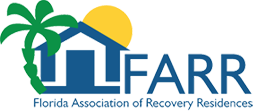Setting Effective Goals to Keep You Moving Forward in Your Recovery
After a tumultuous 2020 featuring unprecedented challenges, it’s safe to say that most people are looking to have a more fulfilling and productive year this year. That may be especially true if you’re starting 2021 newly in recovery.
However, merely setting vague goals often results in disappointment. With only 8% of people accomplishing their New Year’s Resolutions each year, formulating a detailed plan to achieve your goals is imperative. Accomplishing goals in recovery will leave you feeling confident and proud. To hold yourself accountable for your goals, use the SMART strategy to help you plan for success.
What Are SMART Goals?
If you’re new to the idea of SMART goals, it’s a way to frame your goals to help you accomplish them. SMART is an acronym for Specific, Measurable, Attainable, Realistic, and Time-bound. Here’s how it works:
Specific
Create your recovery goals to be as specific as possible. This way, there is no gray area in your plan. To better plan your goals, consider how you will accomplish them by asking the who, what, when, where, and why questions. Instead of saying, “I want to remain sober,” you need to plan precisely what you intend to do to achieve this. A specific plan could be, “I will remain sober by attending two AA meetings a day, four days a week.” Once you develop your goal, write it down and read it often. This process will keep it fresh in your mind and will be a source of constant motivation.
Measurable
Utilizing measurements in your goal helps you determine the effectiveness of your plan. An example of this could be, “I would like to cut back my smoking to one pack per day.” Be sure that the measurement you use is subjective, meaning you’re utilizing a measurement that is the same for everyone and does not involve the quality of something. For the purpose of this example, “one pack of cigarettes” is your measurement.
Attainable
When you’re fresh out of drug or alcohol rehab in the early days of recovery, you can feel very vulnerable and anxious. Remember that all good things take time, so when planning your recovery goals, make sure you plan for something that’s attainable for where you are in life. Try to avoid setting a goal beyond what you can handle physically, mentally, and emotionally. Once you’re in a more stable place in your recovery, you can delve into more profound, long-term goals, but keep it simple and reap the confidence boost that comes from accomplishing goals.
Realistic
Make your goal relevant to your life and the life you hope to have in the future. It should also align with any other goals you plan to work on concurrently. For example, if your goal is to obtain a reliable job and you struggle with alcohol use, your goal should not be to get a bartending job.
Time-Bound
Implementing a timeline in your goal is a crucial aspect of determining the effectiveness. To continue with the smoking example, you could say, “I’ll cut back to one pack a day by smoking one less cigarette a day for three months.”
Recovery can be so challenging at times. You are changing so many aspects of yourself and your life, so take it slow and be kind to yourself. You deserve to be happy and feel in control. With that being said, asking for help when you’re struggling is one of the most courageous things you can do to support your recovery.
If you or a loved one need additional resources, please contact one of our treatment specialist at The Source to help you get back on track. We’re here to support you and make sure you have the tools you need to succeed.

 The Source quite frankly saved my life and got me back on track, never giving giving up on me. When you are thinking about and looking through all of the different places to go for treatment this is the one that should stand out from the rest.
The Source quite frankly saved my life and got me back on track, never giving giving up on me. When you are thinking about and looking through all of the different places to go for treatment this is the one that should stand out from the rest.




























